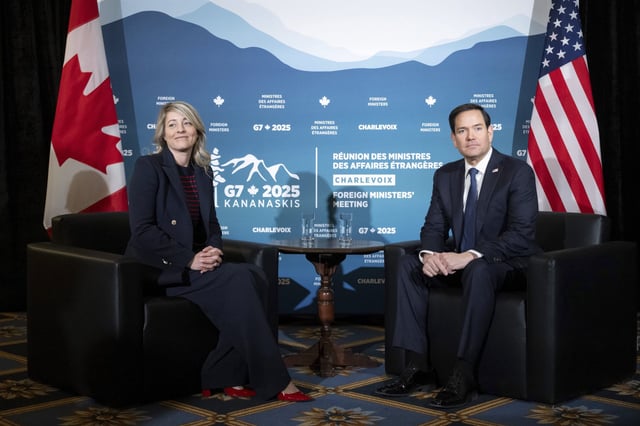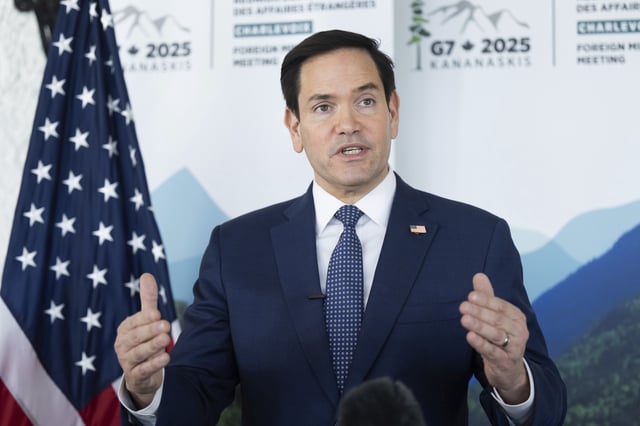Overview
- President Trump has imposed steep tariffs on Canadian steel and aluminum, escalating a trade war with one of the U.S.'s largest trading partners.
- Trump has repeatedly suggested Canada should become the 51st U.S. state, framing it as an economic argument, which Canadian officials have vehemently rejected.
- Newly sworn-in Canadian Prime Minister Mark Carney and Foreign Minister Mélanie Joly have strongly defended Canada's sovereignty and condemned Trump's comments.
- The G7 summit in Quebec, intended to address global issues like Russia's war in Ukraine, was overshadowed by tensions between the U.S. and its allies over trade and annexation rhetoric.
- Despite the friction, G7 foreign ministers issued a joint statement supporting Ukraine's sovereignty and warning Russia of further sanctions if it refuses a ceasefire.



